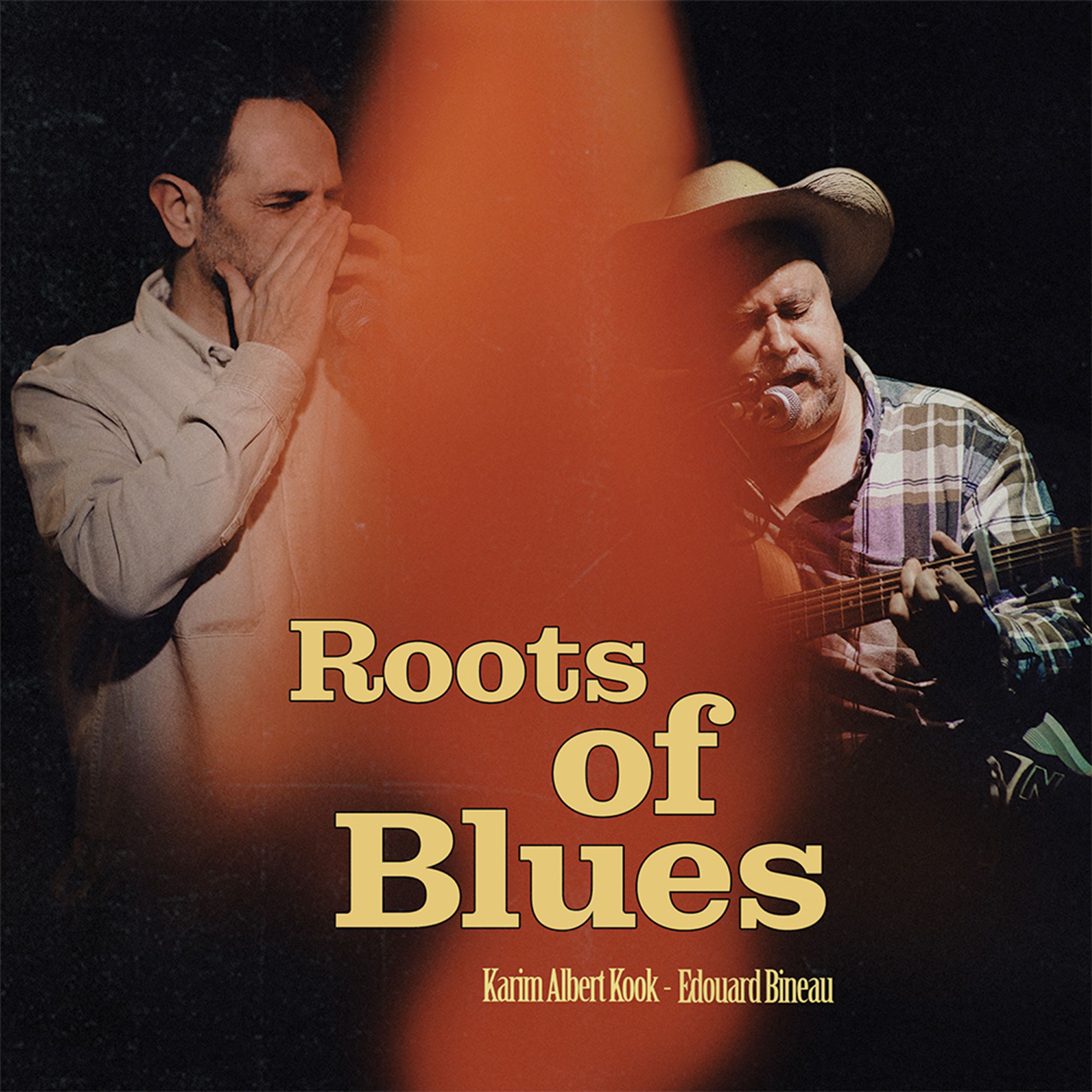In a world where the blues often gets reduced to clichés, Karim Albert Kook’s new album Roots of Blues arrives as both a powerful reminder and a bold reimagining. This is not just a tribute to the genre’s storied past—it’s a reclamation and reinterpretation. Alongside harmonica player Édouard Bineau, Kook brings a fresh, personal, and deeply emotional perspective to the music that laid the foundation for much of modern popular sound.

As the album’s tagline puts it, “The story of the blues told differently,” this isn’t about polished covers or mimicking old recordings. Roots of Blues is about uncovering the very spirit of the genre—its pain, power, migration, and resilience—and retelling its story through the eyes and hands of two musicians from across the Atlantic.
Kook, born in Algeria, and Bineau, of French origin, bring with them the weight of their own histories, drawing a compelling parallel with the cultural mixing that birthed the blues in the American South. The album’s 12 tracks move beyond simple homage. They carry the lived-in textures of the artists’ identities, layered over the sounds of juke joints, backroads, and railroad camps. From the first track, the tone is set—gritty, honest, and deeply felt.
Kook’s gravelly voice feels like it’s been carved out of years of lived experience. He sings not at you, but to you. Whether he’s sliding over the strings of his resonator guitar or picking in rhythmic arpeggios, his playing has a kind of instinctive authenticity that can’t be faked. He makes expert use of open tuning and bottleneck slide, evoking that raw Delta sound without ever feeling like a museum piece.
Édouard Bineau’s harmonica work is equally essential to the album’s emotional pull. Sometimes called the “Mississippi saxophone,” Bineau uses it as a true voice—one that cries, sighs, and moans with equal weight. His playing recalls blues greats while adding his own jazz-influenced flourishes. There’s elegance and restraint in his phrasing, which complements Kook’s grit beautifully.
What stands out most is how the album captures the emotional core of the blues without relying on imitation. These are standards, yes, but filtered through the unique backgrounds and artistic sensibilities of two musicians who understand what it means to live between cultures. Just like the blues grew out of displacement, injustice, and resilience, so too does Roots of Blues.
Each of the 12 songs is treated like a vignette—short stories that breathe, mourn, protest, and hope. There’s no rush here, no gloss. Instead, Kook and Bineau let the songs unfold naturally, building tension and release with a kind of trust that can only come from artists who know when to hold back and when to let go.
The production is minimal but warm, preserving the raw qualities of each instrument. You hear the slide against the strings, the breath in the harmonica, and the ambient air of the room. These details make the listening experience feel immediate and unfiltered—like you’re sitting right there with them as the music takes shape.
Beyond technique and interpretation, what Roots of Blues offers is something increasingly rare in modern music: intention. This is blues with a purpose—not just to entertain, but to remember, to reflect, and to connect. Kook and Bineau remind us that blues isn’t just American—it’s human. It’s music of the displaced, the working class, the weary, and the hopeful. Whether from Mississippi, Marseille, or Algiers, the themes resonate the same.
By weaving their own heritage into the blues, Kook and Bineau affirm its universality. As they explore the genre’s links to migration, segregation, and survival, they also underscore its enduring relevance today.
Roots of Blues is more than a musical project—it’s a cultural offering. Kook and Bineau don’t just revisit the blues; they reclaim it as a living, evolving form of expression. For listeners seeking depth, soul, and substance, this album delivers. It’s not trying to be flashy, but it is undeniably powerful. If you think you know the blues, this album asks you to look again. And listen closely.
Follow KARIM ALBERT KOOK on
